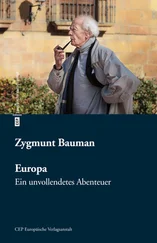In the meantime, Sophia had slipped a dirty pink boa around her neck. She wore a Peter Pan cap with a feather shooting off to the side and glittery pumps. In her hands she held an alligator purse.
“Miss Horseradish, I wish it weren’t true,” J.D. said, holding the helmet over his heart. “But what we had here is over.”
Sophia looked shy, standing on the carpet in her getup.
“We’re all washed up,” J.D. urged.
“Act!” Annabel yelled.
Sophia looked stricken, and she just stood there clutching the alligator purse. They waited, and finally Sophia gave a dramatic turn of her head and teetered in her high heels over to the closet, opened the door, stepped inside among the fishing poles and overcoats and slammed herself in.
“Well,” Annabel said. “That’s not really acting.”
“It was pretty darn good.”
“ Really ?” Annabel shouted.
“Really,” J.D. said.
They stared at the closet door, waiting for Sophia to reappear. Slowly, the door opened and Sophia, red as a beet, came stumbling out. J.D. applauded, and she smiled hugely, pulling on her Peter Pan cap and making the jaunty feather point skyward.
Then the girls changed into new getups and paraded around the living room, walking the runway. “Work it, girls,” he said.
At 8:30 when it was their bedtime, J.D. sent the girls to the bathroom to brush their teeth. He looked in their little bedroom, stuffed with dolls, board games and miniature kitchen appliances. They had bunk beds covered with brightly flowered blankets.
“Let us stay up late. Come on, John Dewey,” Annabel said.
“No, no.” He leaned in the bathroom doorway as the girls took turns spitting into the sink. “Goodnight, little ones, goodnight. Tonight the moon shines high and the lamp light glows, goodnight little ones, goodnight,” he said. This was something his grandmother had said to him when he was small. He could still imagine the watery potato smell of her kitchen, and for a second he was overcome with great love for her; she’d been gone for a long time. He backed into the hall, missing his grandmother and her house built on stilts with its ramps and staircases and the view of the sea. He swallowed hard. “Vamoose,” he said, pointing to their bedroom. “Kapeesh?”
The girls climbed into their beds and pulled the covers up, looking at him standing in the doorway. “We had fun, didn’t we?” Annabel said.
He nodded, then felt stupid and weird. He closed their door and returned to the couch, wondering if he was still that same boy who had run up the ramps and staircases of his grandmother’s house on stilts, or whether he had grown up. After he and Dawn Martinelli had insulted each other one day this week, he’d taken a hall pass and went to the bathroom, where he examined his face. He squeezed a pimple, making the skin raw. He ran his fingers under the cold water and thought about peeing, but he didn’t really have to. When he returned to class the room buzzed with unfamiliar voices. He heard Katie Taylor croon, “I’ve had many gentlemen callers.” Lynn Cooper whispered, “Oh Brick, sometimes I feel like a cat on a hot tin roof,” and Susan Steen yelled in a trembly voice, “STELLA…STELLA!” In the short time he’d been gone, everyone in the room had become someone else.
J.D. heard a car crunch over the ice, and the headlights filled the living room for a second. Nine o’clock, he saw on the wall clock. Two hours, six bucks. He reached for his jacket, working his long arms into the sleeves.
Mr. and Mrs. Allard dashed in with their coats flying open and waved at him before disappearing into the kitchen. Next, a large woman heaved herself through the door and headed for the card table, where she sat down and buttered herself a piece of bread, still wearing her coat. A man in a furry hat with earflaps and big glasses walked in soon after and asked J.D. directions to the bathroom, and he was followed by an elderly couple—the old man, tall and stooped, moved slowly into the room and folded his coat across the back of the couch while his birdlike wife stood on the welcome mat. “Let me help you with your galoshes, dear,” he said to her.
“Why?” she asked. “I’m just going to have to put them back on.”
J.D. stood in the middle of the room, waiting for one of the swift-moving Allards to pay him and drive him home. It smelled good in the kitchen, and he felt his stomach growl. The large, bread-eating woman patted crumbs from her lips with a napkin and wandered into the kitchen.
“What are we eating?” Birdy asked, still standing on the welcome mat.
“Stew, I believe,” the old man said, lowering himself into a folding chair.
“We had soup at that Phipps fellow’s,” she said, gesturing toward the bathroom.
“What can I say?” the old man said quietly.
“How many bowls of soup do they think I can eat?”
“Shush, dear.”
Mrs. Allard entered the living room with a bottle of red wine and stopped short, seeing J.D. in his jacket. “Oh, J.D., we’re not taking you home yet. Didn’t we tell you? This is a progressive dinner. You see, we had coconut soup at Mr. Phipps’s,” she said, referring to the bathroom man who had just returned to the living room. “And cheese puffs and pigs-in-a-blanket at Mrs. Martinelli’s. We’ll have beef stew here and then we’re off to the Waverlys’ for cheesecake and a lemon-lime sherbet roll.” Mrs. Waverly, the birdlike woman, offered half a smile and held up her wineglass for Mrs. Allard to fill. “Everyone, this is J.D., the babysitter,” Mrs. Allard said, and the room turned to him.
J.D. lifted his hand stiffly in more of a stop signal than a greeting. Mrs. Martinelli , he thought queasily. He searched her face for hints of Dawn and sure enough he found them in her high, flat forehead, her large frame, the way she moved her mouth. J.D. backed up a few paces, still standing in his jacket while the dinner guests moved around him. They expected him to sit on the couch while they ate their beef stew. What did they think he should do with himself while they ate their beef stew? And what if it somehow got back to Dawn that he was a babysitter, a Friday night babysitter? He grew warm and anxious, standing on the yellow carpeting. There wasn’t anywhere for him to sit other than the couch, so he sat on the farthest end and unzipped his jacket. He took his book out of his pocket and nervously turned the pages.
“Hey, Johnny boy, do you mind if I flip the light for some atmosphere?” Mr. Allard asked, though he didn’t wait for a response. Mr. Allard was red-faced and chatty from the wine. He turned off the lamp, and the little room was filled with soft candlelight.
Mr. and Mrs. Allard scooped stew into bowls and poured more wine, after which the bathroom man said a short prayer. J.D. sat in the dimness, pretending to read. A progressive dinner party was one of the dumbest ideas he’d ever heard. Coconut soup over here and cheese puffs over there while babysitters were made to sit on the couch, eavesdropping. And just how was the dinner “progressive,” just what was the point? Where did they think they would arrive? A lemon-lime sherbet log was hardly a prize, hardly something to work up to.
J.D. half-listened as the dinner guests discussed a sermon from the previous Sunday, Saturday morning traffic jams on Main Street, and each of their paperboys, who were of the same ilk, haphazardly tossing the day’s news into the snow. J.D. stifled a yawn and listened to his stomach grumble. He almost wished he’d been offered a bowl of stew. He stole glances at the guests, then looked away. He slid out of his jacket and shifted uncomfortably.
“My Dawn has her first boyfriend,” Mrs. Martinelli said. “Vladimir.”
Читать дальше










